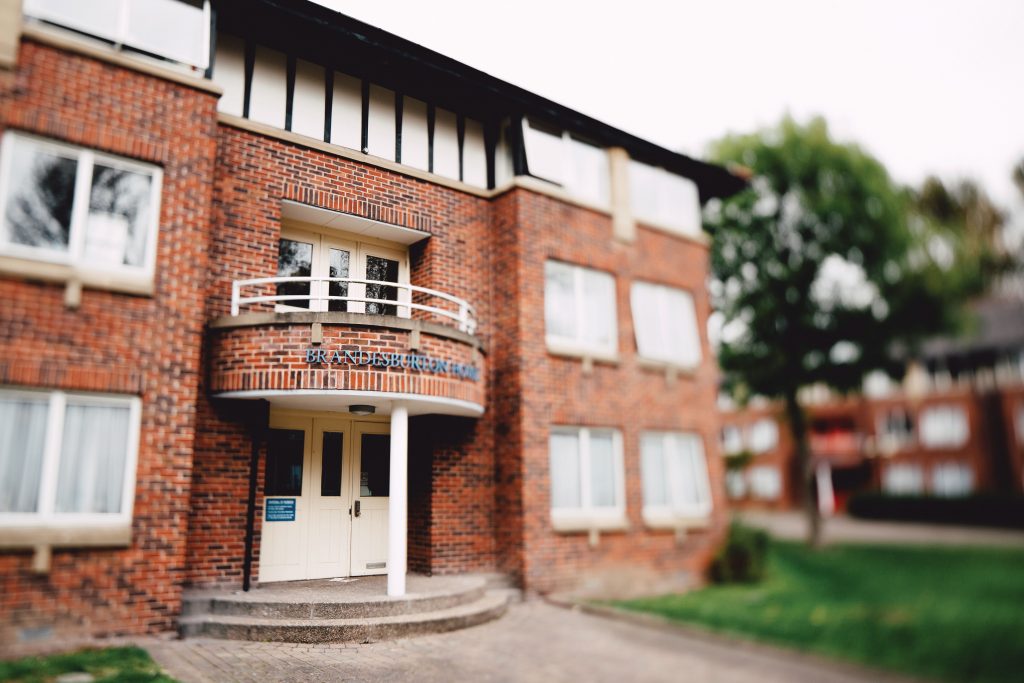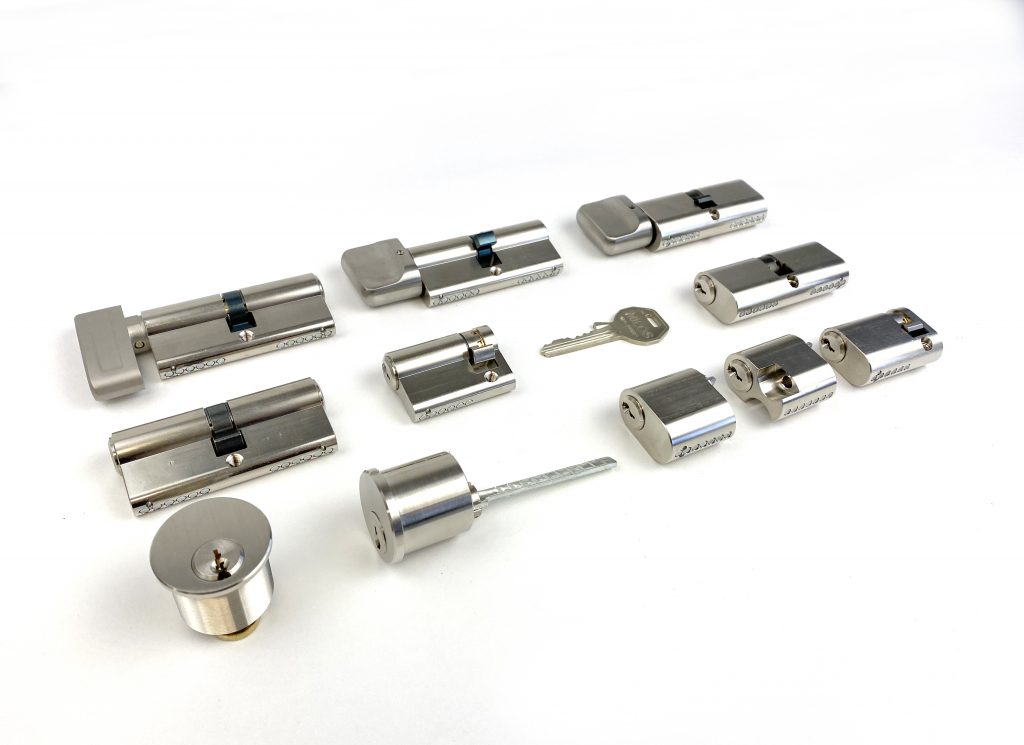With students relying on expensive laptops and mobile phones for both their social lives and their studies, ensuring student accommodation is safe and secure has become more important than ever. But, when planning the security strategy for student living developments, university estates departments must also consider issues of practicality, including emergency access, inspections, maintenance and the inevitable lost key and locked out scenarios.
Traditional locks and keys with a hierarchy of key control remain the most practical, secure and failsafe solution, this approach was taken as part of the refurbishment of 12 student accommodation blocks at the University of Hull.

Complex Simplicity
The University of Hull student blocks are arranged as clusters, with each apartment providing shared living, dining and cooking facilities, along with private en-suite study bedrooms for each resident. The entrance to each block is secured with an access control system and, within each block, the security strategy needed to ensure that residents could only gain access to their own apartment and to their own room within the apartment.
To achieve this, a lock solution was needed that would enable each resident to be issued with a single key to unlock both the front door to their apartment and their study bedroom. It was essential that the key could not be used to access any other apartment or bedroom. The refurbishment contractor was also keen to reduce the number of master keys required for the estates department to gain authorised access to any apartment or study bedroom across all 12 blocks. Refurbishment contractor Bristol-based Harris Evolution brought in Miles Architectural Ironmongery to supply a suitable system.
Explains Mark Read, project manager at Miles Architectural Ironmongery: “We visited site to walk round the student accommodation blocks so that we could draw up a detailed specification of every lock required and the matrix of which keys needed to fit which lock.
“The task was extremely complicated but the goal was to make the finished lock installation as simple and user-friendly as possible for the client and their residents.”
Following the site visit, Miles Architectural Ironmongery carried out key variation calculations and developed a detailed chart of project requirements to brief the team at Locking Systems.
Mark Read continues: “We have worked with Locking Systems on many occasions and know that we can trust them to take the detailed information we provide and manufacture the correct itinerary of locks and keys with a reliable 5-7 day lead time, aligned to our customer’s installation schedule.
“It was important that the lock barrels were compatible with the existing lock cases because this was a refurbishment project and the locks were being retrofitted. It was also essential that students’ keys could not be re-cut on the high street, to protect against subletting, non-paying additional residents and theft, so Locking Systems’ ability to provide patent protected keys was also an integral part of delivering on the brief.”

Precision Manufacturing
Miles Architectural Ironmongery supplied a detailed specification to Locking Systems including a complete list of door numbers for each block and an itemised schedule of which keys needed to fit which doors. The Locking Systems team inputted this information into the company’s software to produce a detailed design for each of the 700 lock cylinders, each with a unique pin configuration, along with a schedule of keys aligned to each lock.
Bill Murray, general manager of Locking Systems explains: “The software generates a precision layout for the pin placement of each lock and collates each lock with the required keys so that we have a complete production schedule for every lock aligned to the key and master key that will open it. All the cylinders we produced for the project are EN 1303 compliant, conform to grade 6 key locking security standards and have thumb turn opening for egress, so we were able to provide robust and reliable security and safety for students. Meanwhile, precision design and manufacture of the bespoke locks and keys offers single key convenience for students and master key simplicity for the estates department.”
The 700 lock cylinders were manufactured at Locking Systems’ factory in Gateshead, with phased production aligned to the installation schedule on site. Following machine production of the lock barrels, each lock was hand-pinned to ensure accuracy, smooth operation and reliable security. Each lock was supplied with two patent protected keys, and just eight master keys were required to operate all locks across the 12 blocks.
Mark Read continues: “To limit the number of master keys required across the project, all the locks and keys needed to be engineered at the same time but the refurbishment project was phased to maximise occupancy and minimise disruption, so supply also had to be phased. Thanks to our close working partnership with Locking Systems, we were able to manage the timings to ensure the right locks and keys were available on site at each point in the project, with dependable lead times to trigger the next production cycle.”
Alongside the locks and keys for the student apartments and study bedrooms, a number of additional locks were required within the student blocks for maintenance locations such as loft hatches and electrical cupboards. Locking Systems also manufactured these locks with hand pinning, aligned to the installation schedule, with a single master key.
For the maintenance locations, safety was the biggest concern, as these areas must only be accessible to authorised personnel. Installing the same high quality locks and specifying all locks with a single master key provided a convenient approach to safety and security across all 12 blocks.
Futureproofing
The University of Hull project is still ongoing with 10 of the 12 blocks now completed. The detailed engineering data for all locks and keys in the project will be retained within Locking Systems’ records to ensure that the delivery partners and the university have all the information required should any of the locks or keys need to be replaced in the future.
Bill Murray adds: “It is always important to consider maintenance and management of buildings throughout the operational lifespan of a refurbishment. Not only will the high quality locks we provided be durable and smooth to operate over years of use, but the detailed information we securely store on the project means that we can produce new keys or locks to integrate with the installation at any time should they be needed.”
